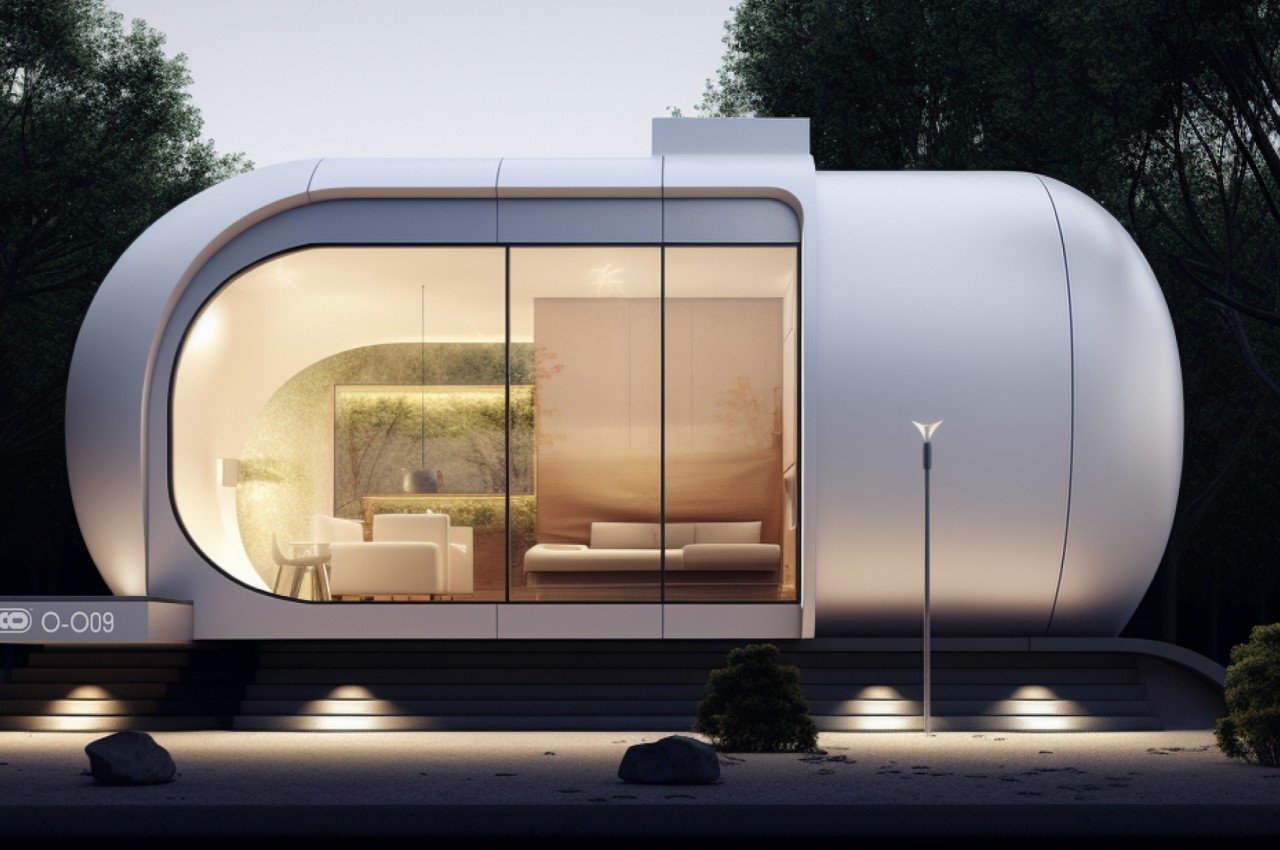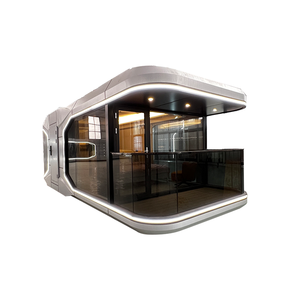Why Modular Homes Are the Future of Sustainable Living
Modular homes are increasingly recognized as a crucial service for lasting living, supplying a blend of performance, cost-effectiveness, and environmental benefits. The versatility of modular layouts allows for the combination of lasting modern technologies and materials customized to specific requirements.
Environmental Benefits of Modular Residences
The ecological advantages of modular homes represent a substantial step toward lasting living. These homes are constructed in regulated factory settings, which significantly decreases waste created throughout the structure process. By enhancing products and lessening excess, modular construction contributes to a much more effective use sources contrasted to typical building techniques.
Furthermore, modular homes are commonly developed with power performance in mind. Many include sophisticated insulation strategies, energy-efficient home windows, and sustainable products, adding to reduced power usage. This can cause lowered greenhouse gas emissions over the life-span of the home, boosting its total ecological account.
The capacity to transport and put together modular elements on-site additionally reduces the carbon impact linked with building and construction logistics. Furthermore, numerous modular homes are constructed to be quickly upgradeable and adaptable, permitting homeowners to implement sustainable modern technologies, such as photovoltaic panels and energy-efficient heater, gradually.
Ultimately, the ecological benefits of modular homes not only promote sustainable living yet also urge an even more responsible technique to real estate advancement, straightening with global initiatives to deal with climate adjustment and preserve natural deposits for future generations.
Cost-Effectiveness and Cost
Structure a home often represents among the largest economic investments people make in their lifetime, and modular homes supply an engaging solution for those seeking cost-effectiveness and cost. Among the key benefits of modular homes is their reduced building and construction prices compared to standard site-built homes. The structured production procedure enables considerable financial savings on labor and products, which translates to decrease rates for customers.
In addition, modular homes normally have shorter building timelines. This not just lowers costs related to financing and insurance yet likewise alleviates the dangers connected with rising cost of living and fluctuating market problems. Several customers discover that modular homes can be customized to fit their budgets without sacrificing top quality or design.
Moreover, power performance is commonly developed into the layout of modular homes, causing decreased energy bills over time. Several producers focus on sustainable products and methods, further boosting the long-term economic viability of these homes. Generally, the mix of initial price savings, fast construction, and recurring energy performance makes modular homes an appealing alternative for those wanting to invest in lasting living without breaking the bank.
Efficiency in Building And Construction
Modular homes not only offer financial benefits but additionally master construction effectiveness. The modular structure process entails the synchronised construction of components in a manufacturing facility setup while website preparation happens simultaneously. This identical strategy substantially lowers the general timeline from fertilization to completion, frequently reducing building and construction time by up to half compared to conventional approaches.
Furthermore, factory-controlled atmospheres enhance quality assurance. By using accuracy production methods, modular homes are constructed to specific specifications, minimizing waste and mistakes. This uniformity not just leads to a greater high quality item yet additionally adds to sustainable methods by lowering product waste during construction.
Furthermore, making use of modern-day technology and automation in the production procedure enables for quicker assembly and lowered labor prices. When the he said components are moved to the website, they can be efficiently assembled, additionally speeding up the timeline. This streamlined process is not just valuable for contractors yet also minimizes disruptions to the surrounding environment throughout building and construction.
Customization and Layout Adaptability
An excellent variety of customization alternatives identifies modular homes, enabling homeowners to customize their home to satisfy particular demands and preferences. This design flexibility is a characteristic of modular building and construction, enabling customers to pick everything from layout and area layouts to coatings and fixtures. Unlike standard homes, modular styles help with a joint method where designers and builders work closely with house owners, guaranteeing that each facet straightens with aesthetic desires and specific way of livings.
In addition, modular homes can be easily reconfigured or expanded, index accommodating altering family members characteristics or progressing personal preferences. This adaptability not only boosts the home's functionality yet also adds to long-term sustainability, as homeowners can customize their spaces instead of look for brand-new housing solutions.

Future Patterns in Sustainable Housing
Arising trends in sustainable housing are reshaping the landscape of household building, stressing environment-friendly methods and innovative innovations. One significant fad is the combination of clever home technology, which boosts power performance through automated systems that check and optimize energy intake. This not only lowers utility costs but likewise adds to a lower carbon footprint.
In addition, using sustainable products is ending up being significantly typical. Contractors are opting for recycled, locally sourced, or rapidly renewable materials, which lessen ecological effect and support local economic situations. Furthermore, modular homes are getting appeal for their decreased waste during building and construction and their adaptability to various terrains and climates.
An additional fad is the unification of environment-friendly roofs and living wall surfaces, which enhance air high quality and supply natural insulation. These functions also advertise biodiversity in urban areas.
Conclusion
To conclude, modular homes emerge as a pivotal option for link lasting living, using considerable environmental benefits through lowered waste and energy efficiency. Their cost-effectiveness and affordability resolve the expanding housing demands in urban locations, while effective construction procedures boost general productivity. The intrinsic customization and design adaptability accommodate diverse choices and requirements. As fads in sustainable real estate progress, modular homes are poised to play an important function in advertising environment-friendly living practices for future generations.
Structure a home typically stands for one of the biggest financial investments individuals make in their life time, and modular homes provide an engaging solution for those looking for cost-effectiveness and cost. One of the primary advantages of modular homes is their reduced construction expenses compared to traditional site-built homes. In general, the mix of first cost savings, rapid building and construction, and ongoing energy effectiveness makes modular homes an eye-catching option for those looking to spend in sustainable living without breaking the financial institution.
Inevitably, the customization and style versatility provided by modular homes make sure that they are not simply frameworks, but personalized havens that reflect the distinct identities of their passengers while advertising lasting living practices.
